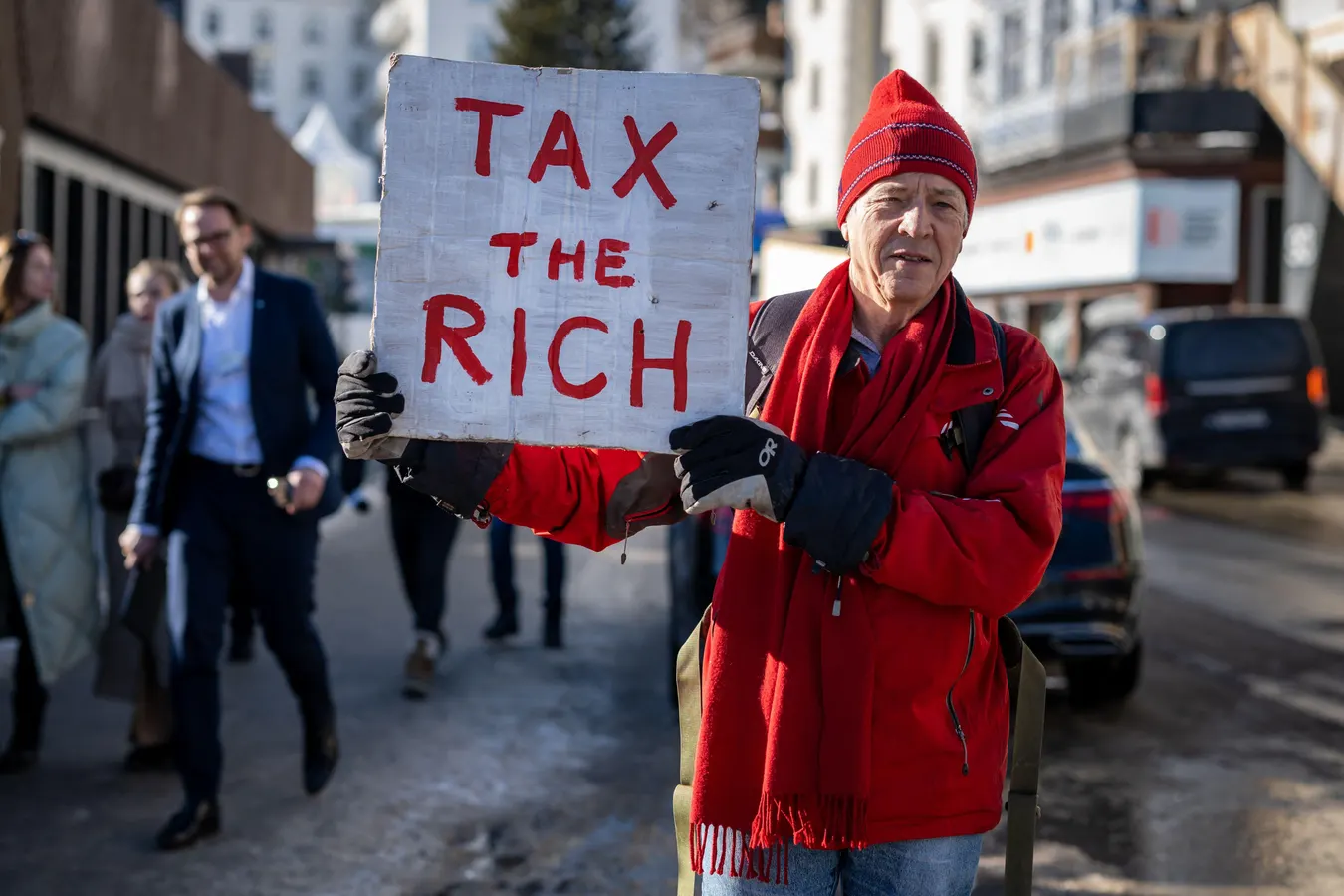By Fabrice Coffrini,Mike O’Sullivan,Senior Contributor
Copyright forbes

Phil White, a British millionaire poses with a placard reading: “Tax the rich” next to the Congress centre during the World Economic Forum (WEF) annual meeting in Davos on January 18, 2023. – Tax me and tax people like me urges in an interview with AFP Phil White, a British millionaire present at the Davos forum, believing that wealth inequalities fragment the world. (Photo by Fabrice COFFRINI / AFP) (Photo by FABRICE COFFRINI/AFP via Getty Images)
AFP via Getty Images
The Anglophone press has recently become very excited by the contribution of economist Gabriel Zucman to the debate in France on the dire fiscal outlook, and the notion that a tax on the super-rich might solve France’s intimidatingly high deficit and debt load. The idea is superficially attractive in France, where wealth is a dirty word, though there is lots of it (France has 5% of the world’s millionaires, according to recent UBS/CS Wealth Reports).
For his part, Zucman – a clever economist and winner of the Clark Medal – is guilty only of not having spent enough time with billionaires, and learning how mobile, and unpatriotic capital has become. Notably, fiscally weak states risk capital flight. Zucman may also have missed the signal that a stiff wealth tax (as a fiscal response) sends to the broad investment community. The UK is an example, where the recent policies of the Tories and Labour have allegedly scared all the billionaires off to either Milan or Dubai.
In France specifically, the debate on the Zucman tax obscures the reality that, in the effective-post Macron era, there is no appetite across the political spectrum to tackle the large deficit and debt load. However a new left-leaning government in France will put the notion of a wealth tax even more so in the limelight.
More broadly, the focus on wealth raises two important questions as we move into the ‘Age of Debt’, where the consequences of indebtedness pervade and dominate politics, financial markets, geopolitics and society. They are how will the capital of the wealthy behave in a debt laden world and how will governments marshall the wealthy?
At first sight, in a world where the burden of mostly government debt, is weighing on economies, owners of capital face opportunities and constraints, both of which will increasingly be driven by the notion of patriotism.
MORE FOR YOU
High levels of government debt mean that governments cannot be as active in building new infrastructure, be it in AI, energy or in defence. That much is very clear in the UK, and despite the easing of the German debt brake, is also true in Europe. In the US, much of the new AI infrastructure will be funded by the cash rich technology giants and the private credit sector.
To that end private asset investors, and seasoned family businesses in the US as well as Europe, may have a larger strategic imprint, and the upshot of this is that tax focused economists like Gabriel Zucman should spend more time thinking of how to better incentivize private investment in Europe, which is yet missing in large economies like Germany.
The other, newer aspect of ‘patriotic capital’ relates to bond markets. We may not be far away from a point where institutional investors begin to lose faith in the bond markets of the major economies – China, Japan, UK, France, Italy and the US – near 60% of the world’s economy. In many of these countries bond yields may rise to multi-decade highs. The US, where inflation looks ready to push higher again is a particular concern, and this might well betray President Trump’s desire to take control of the Federal Reserve’s balance sheet.
Given that the White House has little appetite for orthodox fiscal policy it may, in the context of very high bond yields target the very wealthy, not so much as sources of tax revenue, but as patriotic buyers of debt. There are close to 130,000 ultra high net worth individuals in the US (wealth over USD 50mn and beyond) and together they represent a pool of capital of tens of trillions.
As is now the case in Indonesia, in the near future it may be that, consistent with the idea of financial repression, the US government issues sources a ‘patriotic’ loan financed by American family offices, with the rider that those that have the correct asset allocation do not get a visit from the IRS. It might even be that more nuanced assets – defence innovation venture funding, is farmed out to wealthy Americans (it is largely the case already).
The reality of the indebtedness of the large economies means, somewhat contrary to the Zucman framework, that the wealthy and their governments become more symbiotic, and that there is a ‘contract’ between the wealthy and government. None of this solves the fact that some very wealthy pay miniscule taxes, nor that in countries like the USA, where wealth inequality is at historic extremes, and in particular that the super wealthy exert an undue influence on public life.
What is ahead, given weak government finances and record private wealth, is an era where patriotic ‘barons’ invest in government debt for the sake of fiscal peace and stability, and where they play an outsized role in the private economy. In time, this may sow the seeds of even greater upheaval.
Have a great week ahead, Mike
Editorial StandardsReprints & Permissions